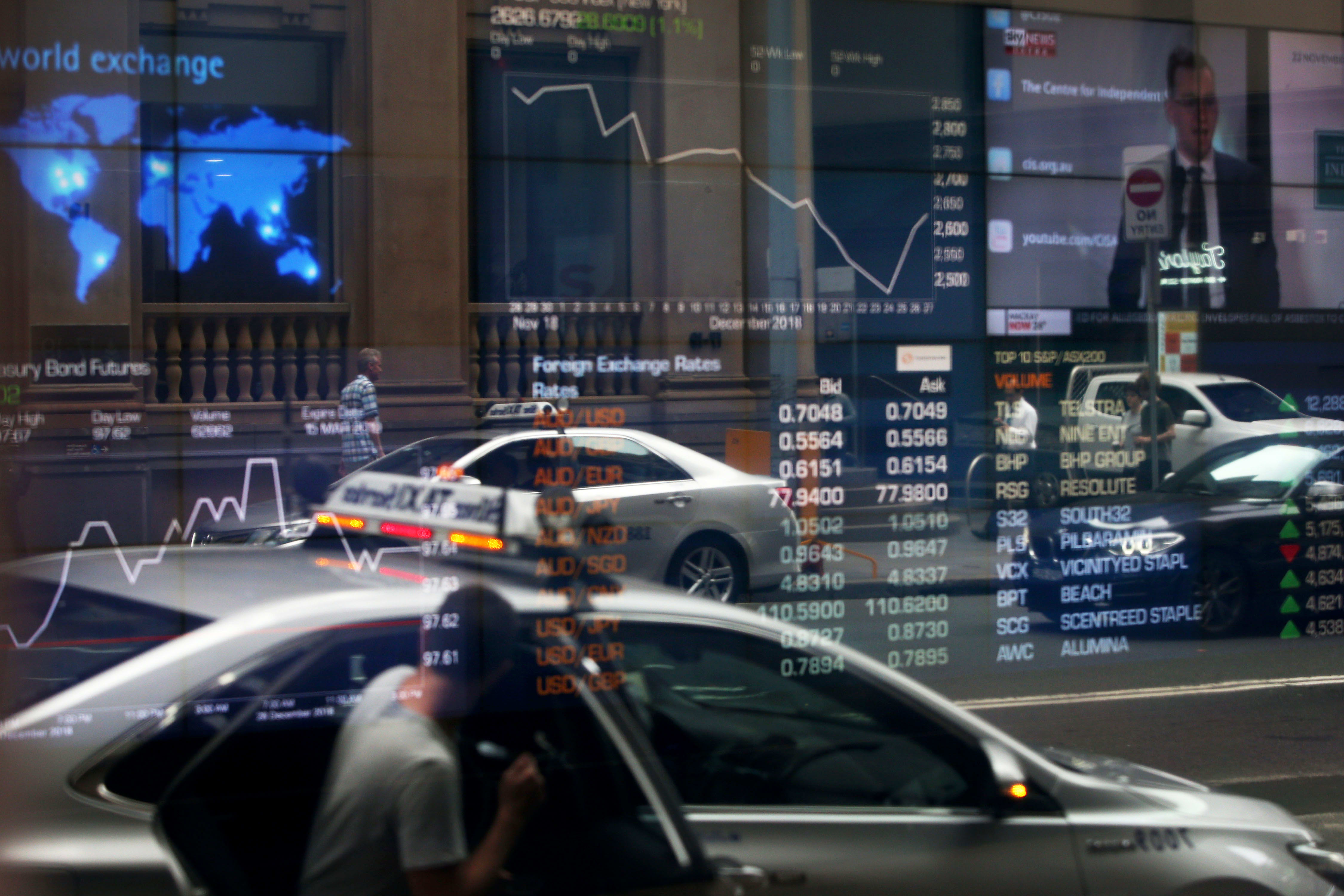
Vehicles are reflected in a window as electronic boards display stock information at the Australian Securities Exchange, operated by ASX.
Lisa Maree | Bloomberg | Getty Images
Asia Pacific markets traded mixed on Monday as investors remained cautious over heightened U.S.-China tensions in recent weeks.
South Korea’s Kospi index gained 0.64% as shares of automakers surged. Hyundai Motor added 11.22% while Kia Motors gained 5.44%.
Some of the big technology names advanced. Samsung Electronics shares rose 0.35%, trimming some of its earlier gains of around 1.39%. SK Hynix shares rose 0.12% while LG Electronics gained 8.42%.
In Australia, the benchmark ASX 200 was up 1.12%, with all sectors trading higher. The heavily weighted financials subindex was up 1.8% as major banks advanced, while resources producers traded mixed.
The Australian dollar changed hands at $0.7167, rising from an earlier low around $0.7145.
Australia is tackling a fresh wave of coronavirus outbreak in Victoria state, which accounts for the majority of reported cases and deaths in the country. In an effort to slow the spread of infection, the state has imposed strict lockdown measures limiting people’s movements and closed large parts of the economy.
Chinese mainland markets struggled for gains: The Shanghai composite opened lower and traded near flat after the first half-hour of trading. The Shenzhen component index was down 1.01% and the Shenzhen composite fell 0.59%.
In Hong Kong, the Hang Seng index fell 1.05% while the technology-focused Hang Seng Tech Index fell 3.2%.
Markets in Japan are closed Monday for a public holiday.
U.S.-China tensions
“The bigger question for markets is whether these actions jeopardise the US-China trade talks on August 15 and markets will be looking closely for any Chinese retaliation,” Tapas Strickland, director for economics and markets at the National Australia Bank, wrote in a Monday morning note.
Officials from both sides are set to review the implementation of their phase one trade deal and are likely to air mutual grievances during an Aug. 15 video conference, Reuters reported last week, citing two sources familiar with the plans.
“The running assumption in markets has been President Trump needed the phase one deal to succeed (as much as China) this side of the November elections to secure the mid-West. At the same time President Trump is running a hard China line into the elections,” Strickland added.
U.S. futures slipped Sunday night after the president signed several executive orders aimed at extending coronavirus relief — infection cases in the U.S. topped 5 million.
The U.S. dollar traded at 93.344 against a basket of its peers, climbing from levels around 92.800 in the previous week but off an earlier high of 93.481.
Oil prices rose Monday morning during Asian hours. U.S. crude added 1.16% to $41.70 per barrel while global benchmark Brent was up 0.92% to $44.81.
Source: CNBC
